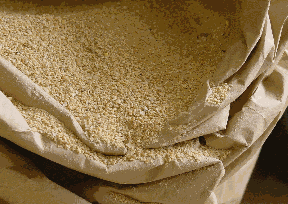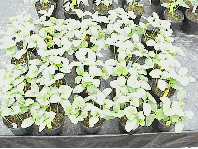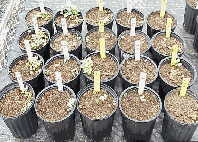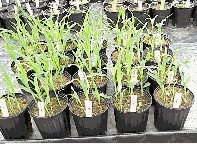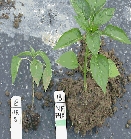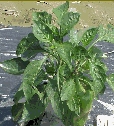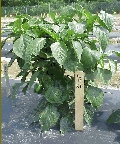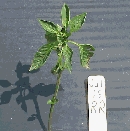Soybean Meal Fertilizer
go.ncsu.edu/readext?435053
en Español / em Português
El inglés es el idioma de control de esta página. En la medida en que haya algún conflicto entre la traducción al inglés y la traducción, el inglés prevalece.
Al hacer clic en el enlace de traducción se activa un servicio de traducción gratuito para convertir la página al español. Al igual que con cualquier traducción por Internet, la conversión no es sensible al contexto y puede que no traduzca el texto en su significado original. NC State Extension no garantiza la exactitud del texto traducido. Por favor, tenga en cuenta que algunas aplicaciones y/o servicios pueden no funcionar como se espera cuando se traducen.
Português
Inglês é o idioma de controle desta página. Na medida que haja algum conflito entre o texto original em Inglês e a tradução, o Inglês prevalece.
Ao clicar no link de tradução, um serviço gratuito de tradução será ativado para converter a página para o Português. Como em qualquer tradução pela internet, a conversão não é sensivel ao contexto e pode não ocorrer a tradução para o significado orginal. O serviço de Extensão da Carolina do Norte (NC State Extension) não garante a exatidão do texto traduzido. Por favor, observe que algumas funções ou serviços podem não funcionar como esperado após a tradução.
English
English is the controlling language of this page. To the extent there is any conflict between the English text and the translation, English controls.
Clicking on the translation link activates a free translation service to convert the page to Spanish. As with any Internet translation, the conversion is not context-sensitive and may not translate the text to its original meaning. NC State Extension does not guarantee the accuracy of the translated text. Please note that some applications and/or services may not function as expected when translated.
Collapse ▲A Natural Fertilizer with Phytotoxic Activity
Melissa Ann Pline Brown, Former Graduate Student, and Jeanine Davis, Ph.D., Advisor
Department of Horticultural Science
NC State University
11/29/2022 – Please note, this was a Master’s thesis project completed in 2004. There have been no updates. Access the thesis.
Introduction
Soybean meal is commonly used as a nitrogen source in organic production. Occasionally, plants are burned or germination is reduced. These studies were designed to examine that.
Germination Inhibition
Greenhouse studies showed that soybean meal (SBM) can inhibit the germination of small seeds. Collards (Southern Georgia), lettuce (Black Seeded Simpson), and turnips (Purple Top) all exhibited more than 50% reduction in germination and shoot weight with SBM sprinkled on the soil surface at 877.5 lb/acre. SBM incorporated into the media also reduced collard shoot weight by 50% at 877.5 lb/acre. Summer squash (Sunray) and cucumber (Conquest) were not affected by SBM at any rate, either sprinkled on the soil surface or mixed into the media. The shoot weight of sweet corn (Wizard) was reduced by 25% with SBM sprinkled on top at 4387 lb/acre while sweet corn shoot weight was not affected by SBM mixed into the media. From these initial tests, it appears that broadcasting and incorporating SBM at the time of planting can significantly inhibit the germination and growth of small seeds.
Treatments for Greenhouse Seed Study
- No soybean meal
- 877.5 lb/acre
- 1755 lb/acre
- 3510 lb/acre
- 4387 lb/acre
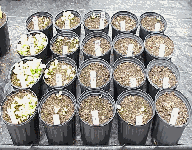 Lettuce |
|
Soybean Meal
7 % Nitrogen
2 % Phosphorus
1 % Potassium
- Commonly available animal feed
- Cost $9.50/lb or $360/ton at time of study
- Allowed by National Organic Program
Transplant Burn — Field Experiment
Three rates of soybean meal were broadcast on 5 ft. centers, bedded, then incorporated and covered with black plastic. Pepper starts were transplanted the next day. Soil tests revealed the mid and high rates of SMB had high levels of soluble salts.
When used at high rates under black plastic, soybean meal burned sweet pepper transplant roots, inhibiting growth and/or leading to death. Fertilizing at least two weeks before planting should allow the soybean meal to break down



